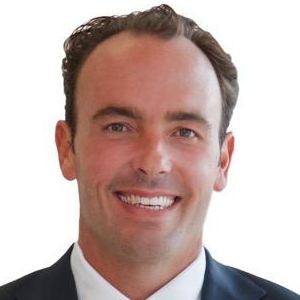Want to know what books Norman Ornstein recommends on their reading list? We've researched interviews, social media posts, podcasts, and articles to build a comprehensive list of Norman Ornstein's favorite book recommendations of all time.
1

At the height of WWI, history’s most lethal influenza virus erupted in an army camp in Kansas, moved east with American troops, then exploded, killing as many as 100 million people worldwide. It killed more people in twenty-four months than AIDS killed in twenty-four years, more in a year than the Black Death killed in a century. But this was not the Middle Ages, and 1918 marked the first collision of science and epidemic disease. Magisterial in its breadth of perspective and depth of research and now revised to reflect the growing danger of the avian flu, The Great Influenza is... more At the height of WWI, history’s most lethal influenza virus erupted in an army camp in Kansas, moved east with American troops, then exploded, killing as many as 100 million people worldwide. It killed more people in twenty-four months than AIDS killed in twenty-four years, more in a year than the Black Death killed in a century. But this was not the Middle Ages, and 1918 marked the first collision of science and epidemic disease. Magisterial in its breadth of perspective and depth of research and now revised to reflect the growing danger of the avian flu, The Great Influenza is ultimately a tale of triumph amid tragedy, which provides us with a precise and sobering model as we confront the epidemics looming on our own horizon. John M. Barry has written a new afterword for this edition that brings us up to speed on the terrible threat of the avian flu and suggest ways in which we might head off another flu pandemic. less 
Greg Dworkin@heshsson yes1
brilliant book, which also explains flu better than most other things you will read (Source)

Kyle Bass@Holykisses Remember the Great Influenza of 1918 (amazing book by Barry)...40-50 million died at a 10% kill rate. The higher the rate, the faster it is likely to burn itself out. 10% is a global pandemic nightmare. (Source)

Dave CollumI guess it is a good time to point out that "The Great Influenza" is a great book. If you think modern medicine would have mitigate this one, you haven't read the book.
https://t.co/t4uHPgfLE6 (Source)
2

"When Pride Still Mattered" is the quintessential story of the American family: how Vince Lombardi, the son of an immigrant Italian butcher, rose to the top, and how his character and will to prevail transformed him, his wife, his children, his players, his sport, and ultimately the entire country. It is also a vibrant football story, abundant with accounts of Lombardi's thrilling life in that world, from his playing days with the Seven Blocks of Granite at Fordham in the 1930s to the glory of coaching the Green Bay Packers of Starr, Hornung, Taylor, McGee, Davis, and Wood in the 1960s. It is... more "When Pride Still Mattered" is the quintessential story of the American family: how Vince Lombardi, the son of an immigrant Italian butcher, rose to the top, and how his character and will to prevail transformed him, his wife, his children, his players, his sport, and ultimately the entire country. It is also a vibrant football story, abundant with accounts of Lombardi's thrilling life in that world, from his playing days with the Seven Blocks of Granite at Fordham in the 1930s to the glory of coaching the Green Bay Packers of Starr, Hornung, Taylor, McGee, Davis, and Wood in the 1960s. It is also a study of national myths, tracing what Pulitzer Prize-winning biographer David Maraniss calls the fallacy of the innocent past, and an absorbing account of the mythmakers from Grantland Rice to Howard Cosell who shaped Lombardi's image.Vincent Thomas Lombardi was born in Sheepshead Bay, Brooklyn, on June 11, 1913. His early life was shaped by the trinity of family, religion, and sports; they seemed intertwined, as inseparable to him as Father, Son, and Holy Ghost. He was deeply influenced by the Jesuits, who taught him the philosophy he later used with his players, subordinating individual desires to a larger cause. The geography of his rise was the opposite of the small-town boy who makes it in the big city. This son of New York did not achieve fame until he took a job in remote Green Bay, Wisconsin. Before that, he had toiled anonymously for twenty years, first as a high school coach in New Jersey, then as an assistant at Fordham, at West Point (under the influential Colonel "Red" Blaik), and finally with the New York Giants. He was already forty-six when he was finally hired to coachthe hapless Packers in 1959, leading them in the most storied period in NFL history, winning five world championships in nine seasons.
By the time he died of cancer in 1970, after one season in Washington during which he transformed the Redskins into winners, Lombardi had become a mythic character who transcended sport, and his legend has only grown in the decades since. Many now turn to Lombardi in search of characteristics that they fear have been irretrievably lost, the old-fashioned virtues of discipline, obedience, loyalty, character, and teamwork. To others he symbolizes something less romantic: modern society's obsession with winning and superficial success. In "When Pride Still Mattered," Maraniss renders Lombardi as flawed and driven yet ultimately misunderstood, a heroic figure who was more complex and authentic than the stereotypical images of him propounded by admirers and critics.
Using the same meticulous reporting and sweeping narrative style that he employed in "First in His Class," his classic biography of Bill Clinton, Maraniss separates myth from reality and wondrously recaptures Vince Lombardi's life and times. less 
Norman Ornstein@davidmaraniss When Pride Still Mattered , his biography of Vince Lombardi, a great book. https://t.co/n3CkewBHNV (Source)
3

NEW YORK TIMES BESTSELLER
From Blackstone chairman, CEO, and co-founder Stephen A. Schwarzman, a long-awaited book that uses impactful episodes from Schwarzman's life to show readers how to build, transform, and lead thriving organizations. Whether you are a student, entrepreneur, philanthropist, executive, or simply someone looking for ways to maximize your potential, the same lessons apply.
People know who Stephen Schwarzman is—at least they think they do. He’s the man who took $400,000 and co-founded Blackstone, the investment firm that manages... more NEW YORK TIMES BESTSELLER
From Blackstone chairman, CEO, and co-founder Stephen A. Schwarzman, a long-awaited book that uses impactful episodes from Schwarzman's life to show readers how to build, transform, and lead thriving organizations. Whether you are a student, entrepreneur, philanthropist, executive, or simply someone looking for ways to maximize your potential, the same lessons apply.
People know who Stephen Schwarzman is—at least they think they do. He’s the man who took $400,000 and co-founded Blackstone, the investment firm that manages over $500 billion (as of January 2019). He’s the CEO whose views are sought by heads of state. He’s the billionaire philanthropist who founded Schwarzman Scholars, this century’s version of the Rhodes Scholarship, in China. But behind these achievements is a man who has spent his life learning and reflecting on what it takes to achieve excellence, make an impact, and live a life of consequence.
Folding handkerchiefs in his father’s linen shop, Schwarzman dreamed of a larger life, filled with purpose and adventure. His grades and athleticism got him into Yale. After starting his career in finance with a short stint at a financial firm called DLJ, Schwarzman began working at Lehman Brothers where he ascended to run the mergers and acquisitions practice. He eventually partnered with his mentor and friend Pete Peterson to found Blackstone, vowing to create a new and different kind of financial institution.
Building Blackstone into the leading global financial institution it is today didn’t come easy. Schwarzman focused intensely on culture, hiring great talent, and establishing processes that allow the firm to systematically analyze and evaluate risk. Schwarzman’s simple mantra “don’t lose money” has helped Blackstone become a leading private equity and real estate investor, and manager of alternative assets for institutional investors globally. Both he and the firm are known for the rigor of their investment process, their innovative approach to deal making, the diversification of their business lines, and a conviction to be the best at everything they do.
Schwarzman is also an active philanthropist, having given away more than a billion dollars. In philanthropy, as in business, he is drawn to situations where his capital and energy can be applied to drive transformative solutions and change paradigms, notably in education. He uses the skills learned over a lifetime in finance to design, establish, and support impactful and innovative organizations and initiatives. His gifts have ranged from creating a new College of Computing at MIT for the study of artificial intelligence, to establishing a first-of-its-kind student and performing arts center at Yale, to enabling the renovation of the iconic New York Public Library, to founding the Schwarzman Scholars fellowship program at Tsinghua University in Beijing—the single largest philanthropic effort in China’s history from international donors.
Schwarzman’s story is an empowering, entertaining, and informative guide for anyone striving for greater personal impact. From deal making to investing, leadership to entrepreneurship, philanthropy to diplomacy, Schwarzman has lessons for how to think about ambition and scale, risk and opportunities, and how to achieve success through the relentless pursuit of excellence. Schwarzman not only offers readers a thoughtful reflection on all his own experiences, but in doing so provides a practical blueprint for success. less 
Eric SchmidtReveals how [the author] has achieved the rarest kind of leverage in multiple fields. (Source)

Norman OrnsteinWhat it Takes remains the best book written about American politics and politicians. i reread every few years. Want to know about Biden? Read it! https://t.co/ZlLwbRqADa (Source)
4

Will progressives and moderates feud while America burns? Or will these natural allies take advantage of the greatest opportunity since the New Deal Era to strengthen American democracy, foster social justice, and turn back the threats of the Trump Era? The United States stands at a crossroads. Broad and principled opposition to Donald Trump's presidency has drawn millions of previously disengaged citizens to the public square and to the ballot boxes. This inspired and growing activism for social and political change hasn't been seen since the days of Franklin Roosevelt's New Deal policies... more Will progressives and moderates feud while America burns? Or will these natural allies take advantage of the greatest opportunity since the New Deal Era to strengthen American democracy, foster social justice, and turn back the threats of the Trump Era? The United States stands at a crossroads. Broad and principled opposition to Donald Trump's presidency has drawn millions of previously disengaged citizens to the public square and to the ballot boxes. This inspired and growing activism for social and political change hasn't been seen since the days of Franklin Roosevelt's New Deal policies and the Progressive and Civil Rights movements. But if progressives and moderates are unable-and unwilling-to overcome their differences, they could not only enable Trump to prevail again but also squander an occasion for launching a new era of reform. In Code Red, award-winning journalist E. J. Dionne, Jr., calls for a shared commitment to decency and a politics focused on freedom, fairness, and the future, encouraging progressives and moderates to explore common ground and expand the unity that brought about Democrat victories in the 2018 elections. He offers a unifying model for furthering progress with a Politics of Remedy, Dignity, and More: one that solves problems, resolve disputes, and moves forward; that sits at the heart of the demands for justice by both long-marginalized and recently-displaced groups; and that posits a positive future for Americans with more covered by health insurance, more with decent wages, more with good schools, more security from gun violence, more action to roll back climate change. less 
Norman OrnsteinRead this compelling piece by the great @EJDionne and then buy and read his new book Code Red! https://t.co/I1YhCePCmz (Source)
5

A psychiatrist and award-winning documentarian sheds light on the mental health care crisis in the U.S.
When Dr. Kenneth Rosenberg trained as a psychiatrist in the late 1980s, the state mental hospitals, which had reached peak occupancy in the '50s, were being closed at an alarming rate, with many patients having nowhere to go. There has never been a more important time for this conversation, as one in five adults--40 million Americans--experiences mental illness each year. Today, the largest mental institution in the U.S. is the LA County Jail, and the last refuge for many of the... more A psychiatrist and award-winning documentarian sheds light on the mental health care crisis in the U.S.
When Dr. Kenneth Rosenberg trained as a psychiatrist in the late 1980s, the state mental hospitals, which had reached peak occupancy in the '50s, were being closed at an alarming rate, with many patients having nowhere to go. There has never been a more important time for this conversation, as one in five adults--40 million Americans--experiences mental illness each year. Today, the largest mental institution in the U.S. is the LA County Jail, and the last refuge for many of the 20,000 mentally ill people living on the streets of Los Angeles is LA County Hospital. There, Dr. Rosenberg begins his chronicle of what it means to be mentally ill in America today, integrating his own moving story of how the system failed his sister, Merle, who had schizophrenia. As he says, "I have to come to see that my family's tragedy is an American tragedy. My family's shame is America's great secret." less 6

Why do Americans mistrust the news media? It may be because show like "The McLaughlin Group" reduce participating journalists to so many shouting heads. Or because, increasingly, the profession treats issues as complex as health-care reform and foreign policy as exercises in political gamesmanship. These are just a few of the arguments that have made Breaking the News so controversial and so widely acclaimed. Drawing on his own experience as a National Book Award-winning journalist--and on the gaffes of colleagues from George Will to Cokie Roberts--Fallows shows why the media have not... more Why do Americans mistrust the news media? It may be because show like "The McLaughlin Group" reduce participating journalists to so many shouting heads. Or because, increasingly, the profession treats issues as complex as health-care reform and foreign policy as exercises in political gamesmanship. These are just a few of the arguments that have made Breaking the News so controversial and so widely acclaimed. Drawing on his own experience as a National Book Award-winning journalist--and on the gaffes of colleagues from George Will to Cokie Roberts--Fallows shows why the media have not only lost our respect but alienated us from our public life.
"Important and lucid...It moves smartly beyond the usual attacks on sensationalism and bias to the more profound problems in modern American journalism...dead-on."--Newsweek less 
Norman Ornstein@JamesFallows @_SunshineRising @Mr_Electrico @JoyceCarolOates @jayrosen_nyu @paulkrugman A must-read book (Source)
Don't have time to read Norman Ornstein's favorite books? Read Shortform summaries.
Shortform summaries help you learn 10x faster by:
- Being comprehensive: you learn the most important points in the book
- Cutting out the fluff: you focus your time on what's important to know
- Interactive exercises: apply the book's ideas to your own life with our educators' guidance.




